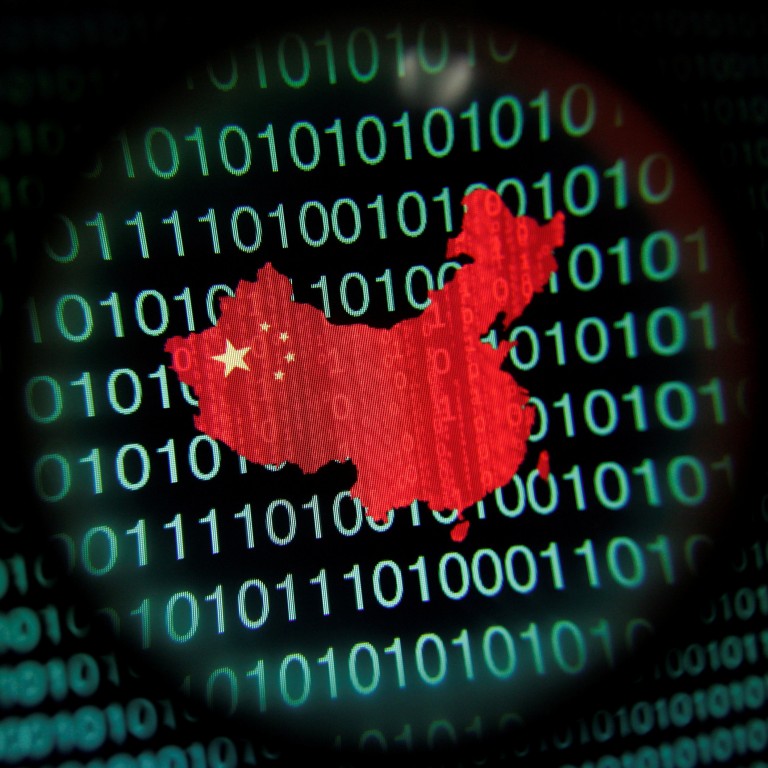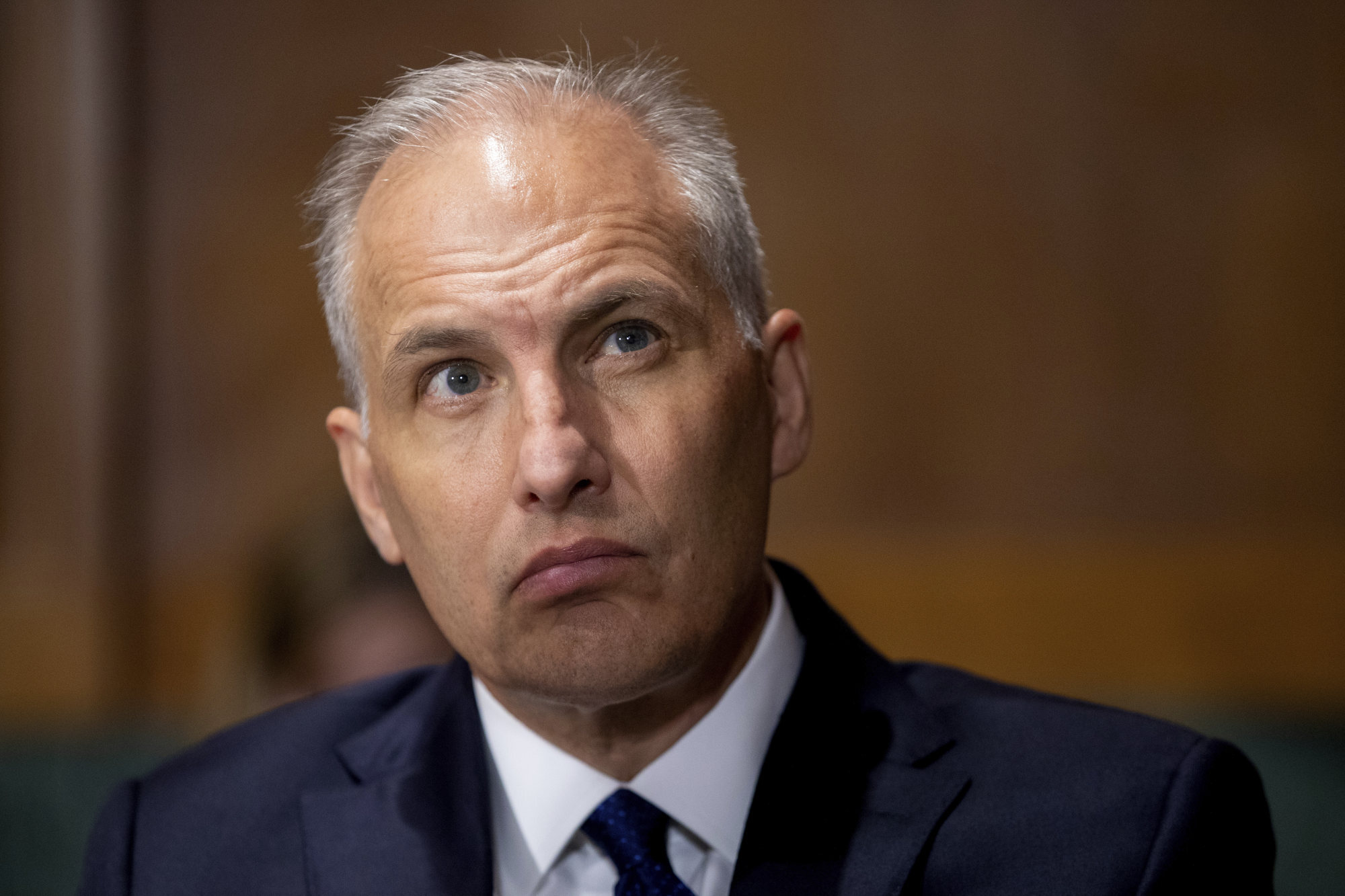
US Justice Department ends ‘China Initiative’ amid concerns over racial bias and a culture of fear
- The shift represents a move from the Trump-era programme targeting Chinese espionage and intellectual property theft and will become more ‘threat-driven’
- ‘Perception of bias undermines our efforts, and makes it harder for us to earn the trust of the communities that we’re trying to serve’
The US Justice Department on Wednesday announced the end of the China Initiative, a programme launched by the Trump administration to fight Chinese espionage and intellectual property theft but which critics said was racially biased and led to prosecutorial overreach.
The move is a recognition that the focus on China was too limited, said Matt Olsen, the assistant attorney general for the agency’s National Security Division, adding that a new approach would focus on Russia, Iran and North Korea as well as China and would be “threat-driven”.
“We are no longer going to have a China Initiative,” Olsen said, citing growing criticism from members of Congress. “But in particular, it came from the scientific and academic community, as well as from the Asian-American and Pacific Islander community.”
Olsen said his department’s months-long review found no evidence that federal prosecutors lowered their standards for people with ties to China or that the programme discouraged talented scientists from studying and doing research in the US.
But even a widespread belief that the department has been unfair exacts a price, he added. “Perception of that type of bias undermines our efforts, and makes it harder for us to earn the trust of the communities that we’re trying to serve,” he said.
Started in November 2018 as the Trump administration’s anti-China comments increased, the initiative targeted leaks of technological and other sensitive information, with universities identified as particularly leaky and vulnerable.
As it gained momentum, however, cases were increasingly brought not on espionage or trade secrets grounds – which face a higher burden of proof – but for paperwork violations in grant applications. And sometimes the “secrets” academics were accused of leaking often were openly available in academic journals.
“This change is going to result in less racial profiling of Asians and Asian-Americans, and that is a good thing,” US Representative Ted Lieu, a Democrat from California, told Reuters. “Now we need to monitor it and see what actually comes of the change.”
Members of the Asian-American community also accused the Justice Department of playing “gotcha” by announcing headline-grabbing indictments only to quietly drop them in disproportionate numbers.
US ‘China Initiative’ stymied scientific innovation, study says
According to a study released in September by Andrew Chongseh Kim, a lawyer and law professor, cases involving Chinese professors under the Economic Espionage Act were far more likely to be showcased in press releases and punished more severely than non-Asians. As many as one in three Asians were falsely accused, the study said.
“The unfair and unequal discriminatory treatment of Chinese-Americans and Asian-Americans in contrast to people with non-Asian names is absolutely shocking and unacceptable,” Gary Locke, chairman of the Committee of 100 and a former US ambassador to China, said in another survey by the Committee of 100 civic group.
Another problem, critics said, is that the initiative took on its own bureaucratic momentum, incentivising federal prosecutors and FBI agents to find cases to please their bosses and earn promotions, whether justified or not. FBI Director Christopher Wray said last month that the agency had a backlog of 2,000 China-related cases.
Almost all sides acknowledge that the problem is real and that China has ever more resources, technology and manpower devoted to espionage. But the US needs to be more selective and targeted in prosecuting genuine infractions rather than technicalities, they said, something the new approach has vowed to do.
“The Chinese government steals staggering volumes of information,” Wray said, adding that the FBI was still opening a new case against the mainland every 12 hours. “There is just no country that presents a broader threat to our ideas, our innovation and our economic security than China.”

Olsen said the Justice Department would continue working on existing cases. “We review those like we do every case,” he said. “I am comfortable with those cases as they stand.”
Many of them involve academics participating in the Thousand Talents Plan, which was set up by Beijing in 2008 to attract foreign talent. But scientists expressed concern that US grant-making institutions and universities encouraged them to participate in foreign talent programmes. Then the rules suddenly changed as US-China tensions rose, they said.
Asian-American groups say the initiative has tarnished long-nurtured academic reputations, derailed careers and led to inordinate stress. Universities also reacted differently when their employees were indicted. Some quickly fired professors and distanced themselves.
Others, such as the Massachusetts Institute of Technology – in a case involving Gang Chen, a mechanical engineer and nanotechnologist – were supportive. It launched petition drives and lent financial support for his legal defence.
But analysts note that MIT also has far more resources than smaller US universities and research institutions.
US drops charges against MIT professor accused of lying about China ties
As the number of cases involving paperwork infractions grew, so too did the number of those cleared of charges, along with increased criticism and calls for reform. Among those acquitted were Anming Hu, a University of Tennessee, Knoxville biomedical associate professor; Qing Wang, a heart disease researcher at the Cleveland Clinic; brain researcher Chen Song at Stanford University; and Xin Wang, a visiting neurological diseases researcher at the University of California, San Francisco.
A major turning point came with Hu’s case, which ended when a federal judge acquitted him after a jury declared a mistrial. One of the jurors, Wendy Chandler, said she kept looking for a big reveal but ultimately characterised the trial as “the most ridiculous case” and the charges against Hu as “a series of plausible errors, a lack of support from [the university] and ruthless ambition on behalf of the FBI”.
A significant victory for the Justice Department involved the case of Charles Lieber, who headed Harvard’s chemistry department and was an expert in nanotechnology. The conviction was won largely on charges of tax evasion and that he hid his participation in the talent programme, which largely turned on a confession Lieber gave the FBI shortly after his arrest.

The initiative has also coincided with Asian-Americans’ growing clout in the US political arena. The demographic has become the fastest growing ethnic or racial group in the electorate, accounting for nearly 5 per cent of eligible voters.
It had an Asian-American presidential candidate in 2020 when Andrew Yang ran, record numbers of state and local government officials and increasingly savvy use of political pressure through multiple groups.
The Democratic administration has also had to walk a fine line. Struggling with declining support nationwide, it remains wary of looking weak on China, an issue Republicans have been quick to exploit.


